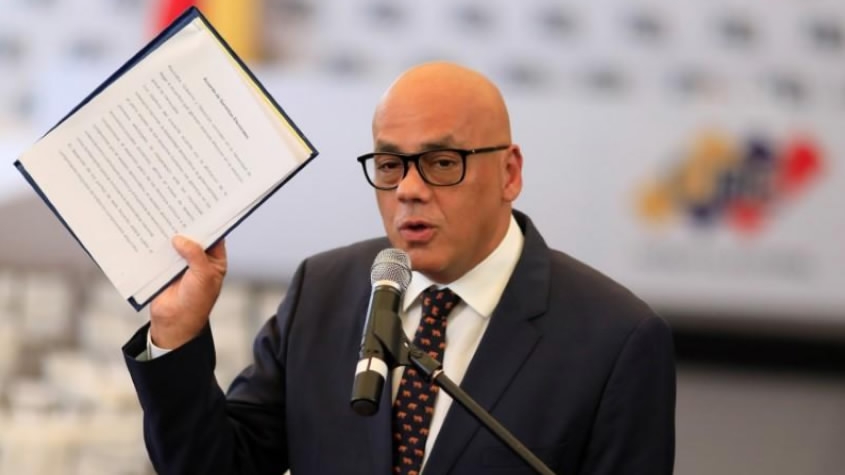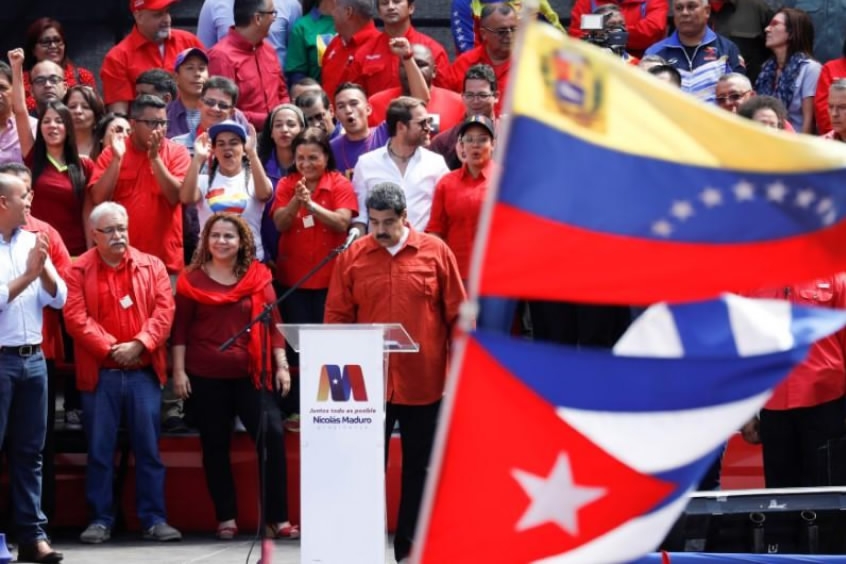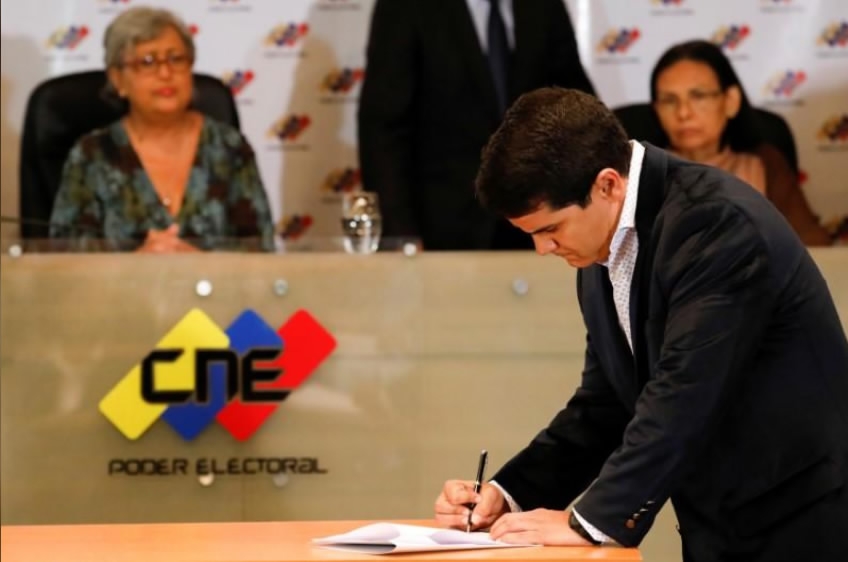
Politics
08:26, 02-Mar-2018
Venezuela postpones presidential election to late May
CGTN

Venezuela on Thursday postponed its upcoming presidential vote to May in a move cementing an opposition split as socialist incumbent Nicolas Maduro seeks re-election despite an economic crisis and global censure.
The national election board announced the vote slated for April 22 had been pushed back to the second half of May, with a final date to be specified later, after a pact between Maduro's government and some opposition parties.
The main opposition coalition is boycotting the poll, saying it is a farce intended to legitimize a "dictatorship."
Maduro's two strongest opposition rivals, Leopoldo Lopez and Henrique Capriles, are both barred from standing, and most Venezuelans view the election board as compliant to Maduro.

Venezuela's President Nicolas Maduro attends a rally outside the National Electoral Council (CNE) headquarters after registering his candidacy for re-election, in Caracas, Feb. 27, 2018. /Reuters Photo
Venezuela's President Nicolas Maduro attends a rally outside the National Electoral Council (CNE) headquarters after registering his candidacy for re-election, in Caracas, Feb. 27, 2018. /Reuters Photo
Western nations and a dozen Latin American neighbors have denounced Maduro's government over unfair conditions for the vote.
The United States is considering imposing sanctions on the OPEC member's crucial oil sector.
Thursday's agreement to postpone the presidential election with Progressive Advance party, led by Henri Falcon, and some other movement, was evidence of a reconciliatory spirit that undercut foreign criticism of autocratic rule in Venezuela, the Communications Minister Jorge Rodriguez said.

Luis Romero, general secretary of the Advance Progressive party, signs a document at the National Electoral Council headquarters in Caracas, Venezuela, March 1, 2018. /Reuters Photo
Luis Romero, general secretary of the Advance Progressive party, signs a document at the National Electoral Council headquarters in Caracas, Venezuela, March 1, 2018. /Reuters Photo
Breaking with the main opposition coalition, Falcon has launched his candidacy.
The 56-year-old former state governor believes he can win, without the coalition's election machinery behind him, by taking advantage of widespread dissatisfaction with the ruling socialists over a fifth year of grueling recession.
However, opposition supporters in the camps of Lopez and Capriles have rounded on him as a "sellout" and are urging voters to stay away from the polls in order to isolate Maduro and de-legitimize what they say will be a rigged win.
14415km
Source(s): Reuters

SITEMAP
Copyright © 2018 CGTN. Beijing ICP prepared NO.16065310-3
Copyright © 2018 CGTN. Beijing ICP prepared NO.16065310-3